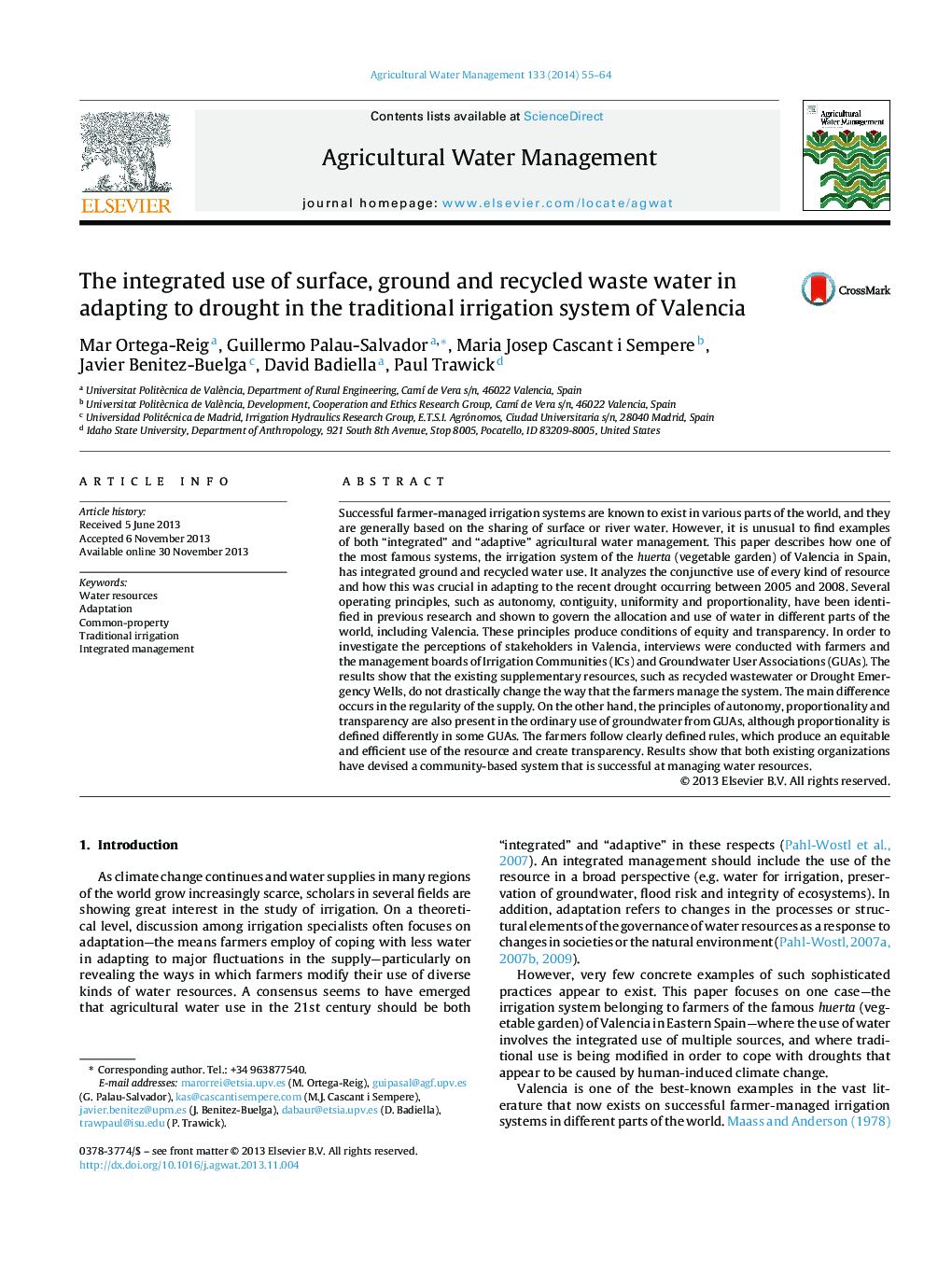| کد مقاله | کد نشریه | سال انتشار | مقاله انگلیسی | نسخه تمام متن |
|---|---|---|---|---|
| 4478688 | 1622946 | 2014 | 10 صفحه PDF | دانلود رایگان |
• We examine the use of river, ground and recycled water for irrigation in Valencia.
• Surface water use is based on principles such as autonomy, equity and transparency.
• Introduction of recycled wastewater produces a disruption in the regularity of supply.
• Groundwater use overlaps surface water use but keeps most of the basic principles.
• Integral use of resources is significant in adapting to drought.
Successful farmer-managed irrigation systems are known to exist in various parts of the world, and they are generally based on the sharing of surface or river water. However, it is unusual to find examples of both “integrated” and “adaptive” agricultural water management. This paper describes how one of the most famous systems, the irrigation system of the huerta (vegetable garden) of Valencia in Spain, has integrated ground and recycled water use. It analyzes the conjunctive use of every kind of resource and how this was crucial in adapting to the recent drought occurring between 2005 and 2008. Several operating principles, such as autonomy, contiguity, uniformity and proportionality, have been identified in previous research and shown to govern the allocation and use of water in different parts of the world, including Valencia. These principles produce conditions of equity and transparency. In order to investigate the perceptions of stakeholders in Valencia, interviews were conducted with farmers and the management boards of Irrigation Communities (ICs) and Groundwater User Associations (GUAs). The results show that the existing supplementary resources, such as recycled wastewater or Drought Emergency Wells, do not drastically change the way that the farmers manage the system. The main difference occurs in the regularity of the supply. On the other hand, the principles of autonomy, proportionality and transparency are also present in the ordinary use of groundwater from GUAs, although proportionality is defined differently in some GUAs. The farmers follow clearly defined rules, which produce an equitable and efficient use of the resource and create transparency. Results show that both existing organizations have devised a community-based system that is successful at managing water resources.
Journal: Agricultural Water Management - Volume 133, February 2014, Pages 55–64
